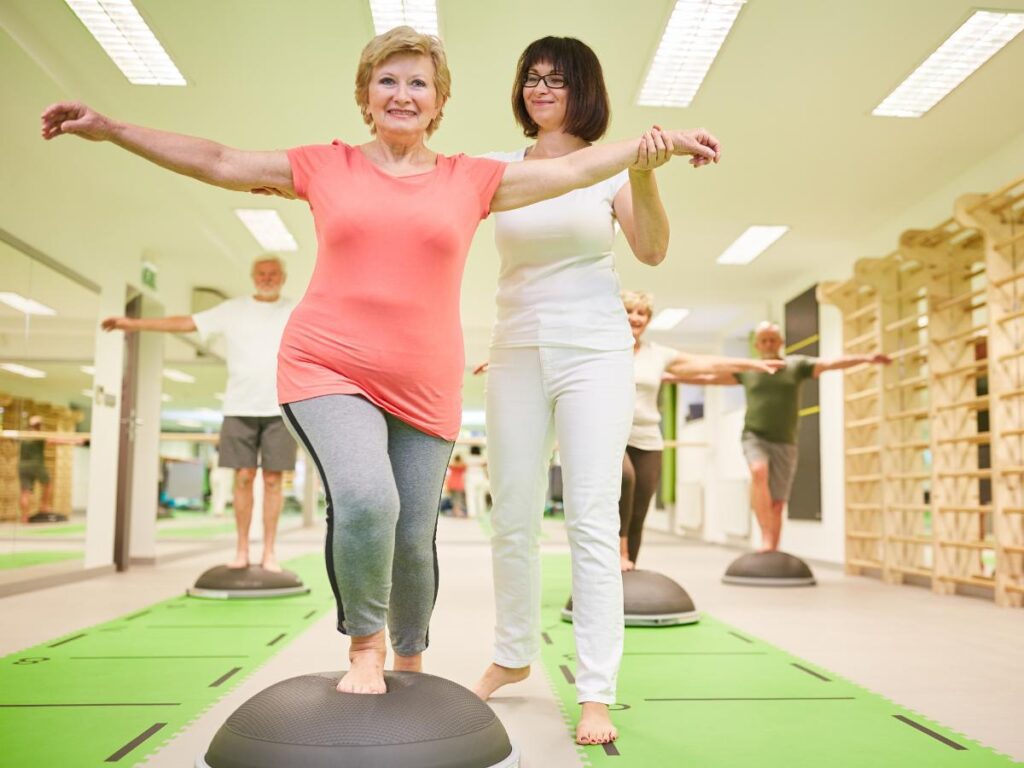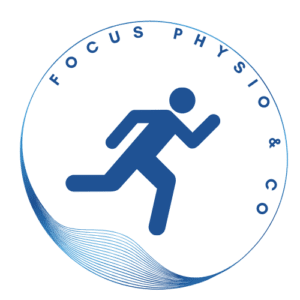Falls prevention and balance training are critical components of maintaining your health and wellbeing, particularly in older adults. In this article, we explore the pivotal role of exercise physiologists in designing and implementing personalised exercise programs that address key factors contributing to falls risk, ultimately promoting a healthier and more active lifestyle.

How Does An Exercise Physiologist Help Prevent Falls?
Assessment:
We begin with a thorough assessment, evaluating your strength, balance, flexibility, and overall mobility. This assessment serves as the foundation for identifying specific weaknesses or deficits that may increase your risk of falls.
Personalised Exercise Programs:
Based on the assessment, personalised exercise programs are crafted to target and address identified weaknesses. These programs encompass strength training, balance exercises, flexibility work, and cardiovascular activities, providing a comprehensive approach to falls prevention.
Strength and Muscle Conditioning:
A primary focus lies on strengthening muscles, particularly in the lower body, to enhance balance and stability. Improved muscle strength equips you with the ability to respond effectively to stumbles, significantly reducing your likelihood of falling. This also helps to improve your bone health which can reduce the side effects of falling like broken bones.
Balance Training:
Incorporating essential balance exercises, our programs help you to develop and maintain a stable centre of gravity. These exercises challenge balance and coordination, preparing individuals to react adeptly to unexpected balance disturbances.
Gait and Mobility Enhancement:
Optimising your gait and mobility is a key objective, involving the retraining of movements to ensure steady and safe steps, thus minimising the risk of tripping or stumbling.
Education and Empowerment:
Educating you about falls risk factors, such as medication side effects, vision problems, and environmental hazards, is integral. This knowledge empowers you to make informed lifestyle choices that further reduce your risk of falling.
Progress Monitoring:
To ensure ongoing progress, regular monitoring is essential, facilitating necessary adjustments to the exercise program based on your improvements and evolving needs.
Long-Term Prevention:
The role of exercise physiology extends beyond immediate falls prevention, aiming to maintain and improve your physical condition for long-term prevention.
Collaboration with Other Healthcare Professionals:
Our team collaborates with other healthcare professionals such as physiotherapists to ensure a comprehensive falls prevention strategy that considers all aspects of your health.
Wellness Promotion:
Beyond falls prevention, exercise physiologists emphasise overall wellness. Encouraging a healthy lifestyle, including regular exercise, contributes to maintaining independence and quality of life as you age.
Conclusion
Exercise physiologists play a pivotal role in falls prevention and balance retraining, offering tailored programs that empower you to mitigate falls risks, enhance stability, and embrace a more active and fulfilling lifestyle.
If you have had a fall or worry about falling, contact our friendly team today to see how we can help you.
Author: Adriana Pelegrin, Exercise Physiologist






